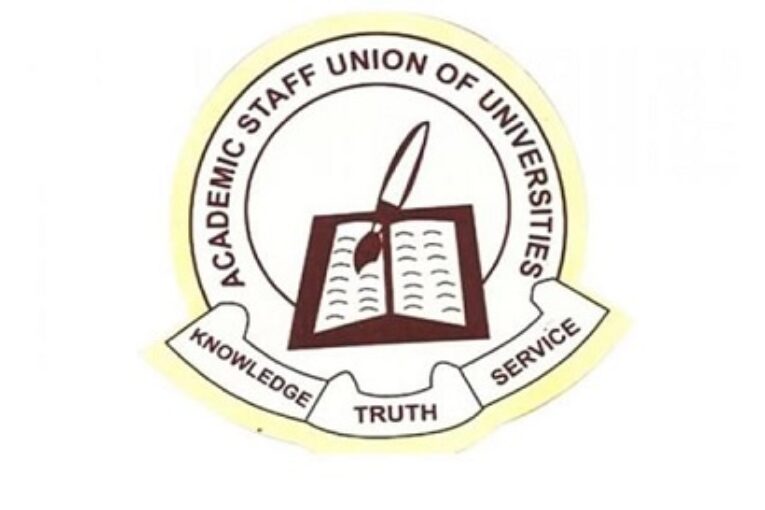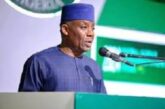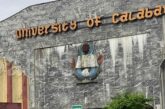
Academic activities were grounded across various public universities nationwide on Monday as the Academic Staff Union of Universities began its two-week warning strike to press home its demands.
The renewed standoff between ASUU and the Federal Government was sequel to the breakdown of talks between both parties.
The strike was declared by the National President of ASUU, Prof. Chris Piwuna, in Abuja on Sunday.
This is even as the Federal Government mandated the National Universities Commission to submit the attendance list of all lecturers across public universities in seven days’ time.
But the Nigeria Labour Congress expressed solidarity for the union while berating the Minister of Education, Tunji Alausa, over the move to implement the no-work-no-pay policy.
The NLC president, Joe Ajaero, described the policy as an act of intimidation which he said would not resolve the crisis in the nation’s public tertiary institutions.
Alausa had claimed that the government had entered the final phase of talks with ASUU and other unions to resolve the lingering disputes over welfare, funding, and the implementation of the 2009 ASUU-FGN Agreement.
He said the Tinubu administration had already made significant progress with the release of N50bn for the payment of Earned Academic Allowances, while another N150bn had been captured in the 2025 budget for needs assessment, to be disbursed in three tranches.
Following the strike action by ASUU, Alausa in a circular on Monday directed the National Universities Commission and vice chancellors to enforce the ‘no work, no pay’ policy.
In line with the provisions of the labour laws of the federation, the Federal Government reiterated its position on the enforcement of the ‘No work, no pay’ policy in respect of any employee who fails to discharge his or her official duties during the period of strike action,” the circular reads.
The minister directed all vice-chancellors of federal universities to immediately conduct a roll call and physical headcount of all academic staff in their institutions.
He also instructed them to submit a comprehensive report indicating staff members who are present and performing their official duties, and those absent or participating in the strike.
Alausa further directed that salary payment for the period of work stoppage be withheld from those who fail to perform their duties.
He clarified that members of the Congress of University Academics and the National Association of Medical and Dental Academics, who are not part of the strike, are exempted from the directive and will not face any salary deductions.
The minister also tasked the NUC to monitor compliance with the directive and submit a consolidated report to the ministry within seven days of receiving the circular.
“The National Universities Commission will monitor compliance with this directive and submit a consolidated report to the Ministry within seven days of receipt of this circular.
“Please, treat this matter with utmost urgency and a deep sense of responsibility in national interest,” Alausa urged the university heads.
Reacting to the development, ASUU president, Piwuna, a consultant psychiatrist, noted that the union does not respond to threats.
A visibly angry Piwuna, who appeared on Channels Television ‘Politics Today’ on Monday, also cautioned the minister against “divide and rule” tactics
“We do not respond to threats. Nobody can threaten us. We see ourselves as victims of this government the way students see themselves as victims of what is going on. ASUU is willing, we are ready, we are available to discuss this matter once and for all.”
Meanwhile, the NLC president warned Alausa against the implementation of the ‘no work, no pay policy.’
Ajaero also noted that the NLC would be forced to take action should the minister fail to meet the demands of ASUU by the end of the two-week warning strike.
“If, after the two-week warning strike, the government remains unresponsive, the NLC will not stand idly by. The NLC will convene an emergency meeting with its affiliates in the tertiary education sector to develop a comprehensive strategy for further engagement with the government.
“The struggle of ASUU is the struggle of the Nigerian working class. The fight for public education is a fight for Nigeria’s future. The NLC will no longer allow these unions to stand alone.
“We demand that the Federal Government use this two-week window to present a concrete plan for the full implementation of all agreements.
“The choice is clear: honour the agreements and salvage public education, or face the resolute and unified force of the entire Nigerian workforce.”
In the aftermath of the strike, academic activities were grounded across various public universities nationwide.
The ASUU-Ahmadu Bello University branch chairman, Haruna Jibril, confirmed the compliance shortly after a congress held at the university’s main campus in Samaru, Zaria, saying the decision reflected the collective resolve of the academic staff to press home their long-standing demands.
“We have complied 100 per cent with the directive from our national body. Although this is the first day of the strike, we are optimistic that the level of compliance will remain total throughout the two-week period,” Jibril told journalists after the congress.
He said the union had no option but to join the nationwide warning strike in solidarity with the national body, noting that the government’s failure to meet the union’s demands had made continued patience untenable.
“Our members have remained steadfast and resilient despite years of neglect by successive governments. This strike is not for personal gain; it is about the future of our universities and the welfare of both staff and students,” Jibril said
At both the Samaru and Kongo campuses of the institution, the usual buzz of academic life was replaced by clusters of students discussing the development.
At the Faculty of Education, lecture rooms were deserted, and students sat idly in groups. A few lecturers were spotted around the faculty premises, but none entered classrooms to teach.
Punchng




